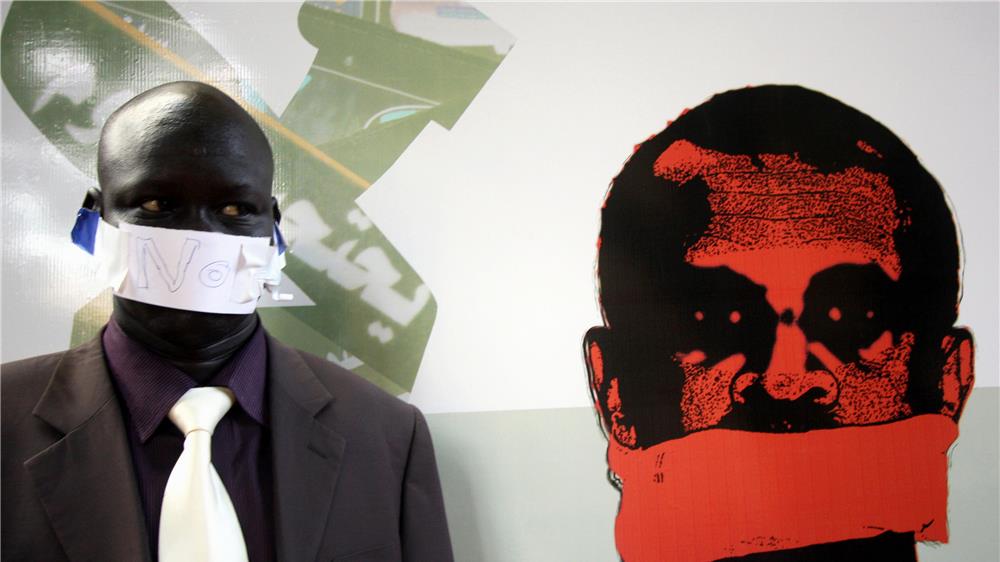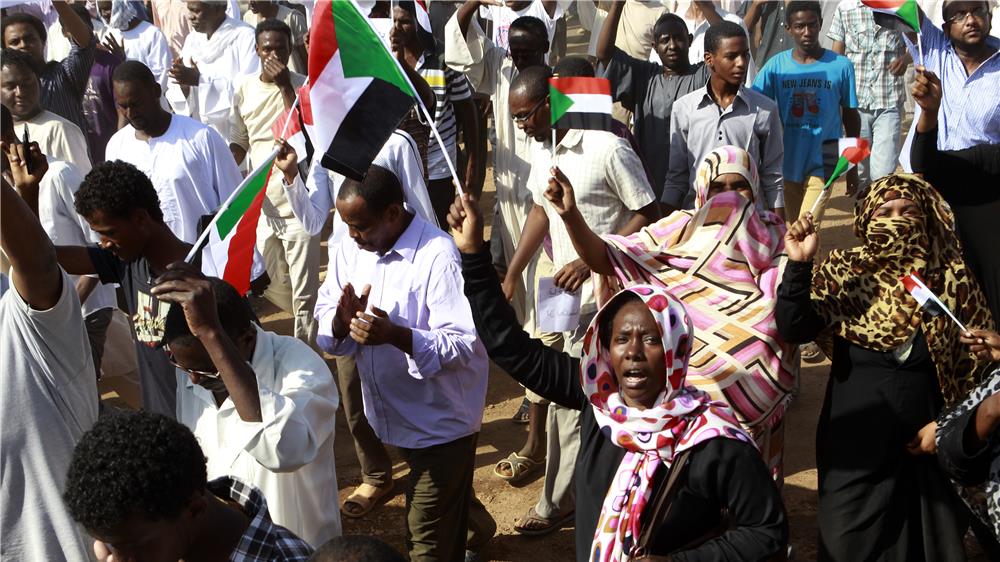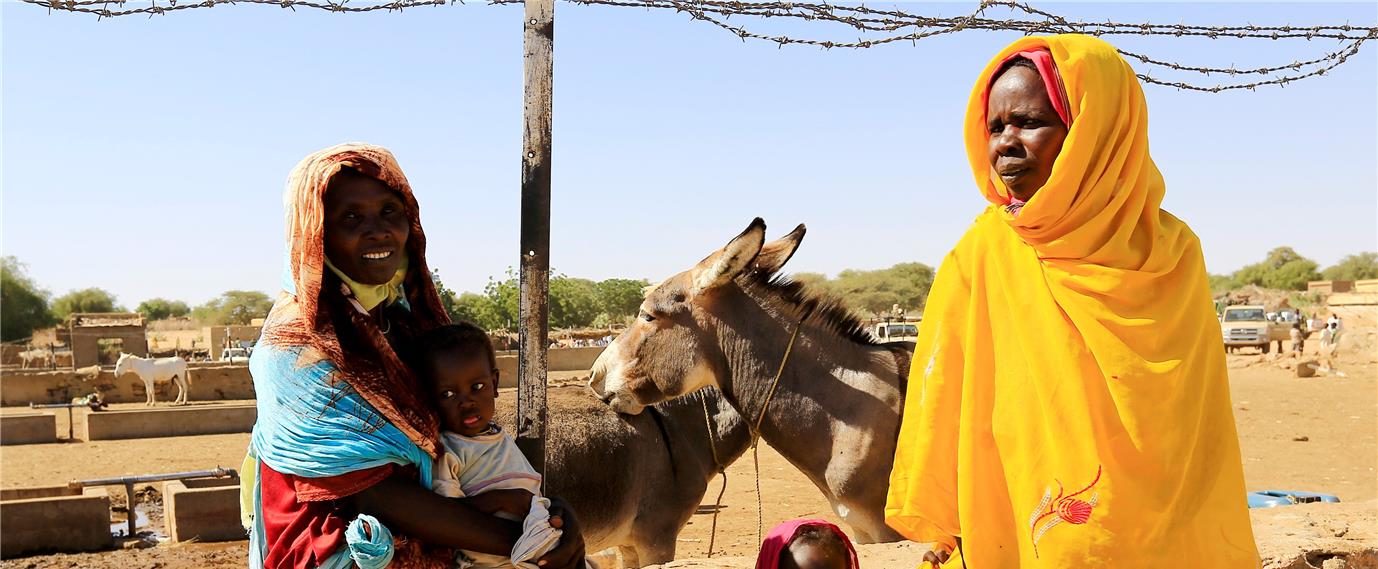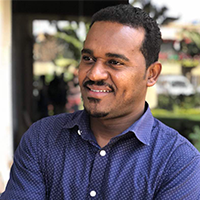تحول المشهد الإعلامي في أفريقيا بسرعة إلى السماح بمزيد من مشاركة المواطنين في الصحافة، وهذا يعود إلى النمو السريع في تكنولوجيا المعلومات والاتصالات وانتشار الإنترنت، وتزايد استخدام الهواتف المحمولة في معظم الدول الأفريقية. ولكن السياسات التي تنتهجها السلطات الحاكمة في تلك البلدان ما زالت تكرس النمط الدكتاتوري وتشدد قبضة السلطة التي تكذب الشواهد وتعتبرها تغييراً يضر بمصالح أفرادها وهي التي تعتبرالمواطن من آخر اهتماماتها.
لكن مع ذلك، تنخرط الصحافة بسرعة في المشاركة الديمقراطية، حيث أصبح لدى المواطن اليوم القدرة على تغطية الأخبار أو التعبير عن وجهة نظره بشأن مجتمعه، وأصبحت الأخبار "من المواطن، وإلى المواطن، وعن المواطن". نتذكر هنا ما قاله فاكسون باندا في تقرير نشر عبر شبكة الصحفيين الدوليين: "هناك العديد من المشاكل المرتبطة بصحافة المواطن، أبرزها السؤال حول من ذلك الذي يجيز هذا النوع من الصحافة؟ وكيف يمكن مساءلة المواطنين الصحفيين؟".

المناخ المناسب
ازدهرت صحافة المواطن في السودان بصورة مطّردة مع انتشار أجهزة الهاتف المحمول والزيادة المستمرة لاستخدام وسائل التواصل الاجتماعي، وظهر ذلك جلياً في الاحتجاجات الشعبية التي شهدتها مدن عدة في البلاد في سبتمبر/أيلول 2013 رفضاً لرفع الدعم عن الوقود، والتي تحولت من ثمّ إلى التنديد بسياسات الحكومة والدعوة لإسقاطها.. شجع هذا المناخ عدداً من النشطاء لنشر الأخبار والصور والتسجيلات المصورة للمظاهرات عبر صفحاتهم الشخصية، ثم ما لبث الأمر أن تطوّر إلى تشكيل عدد من المنصات المتخصصة في نشر أخبار وتطورات الاحتجاجات.
وقد مثَّلت المواد المنشورة في هذه المنصات مصدراً للأخبار والصور بالنسبة لكثير من وسائل الإعلام العالمية، كما حظيت بمتابعة آلاف السودانيين، وبدا واضحاً أن الفئة الأكبر من المتابعين أو الفاعلين في تلك المنصات هم الشباب. وقد ساعد ذلك كثيرين كي يصبحوا نجوماً في المجتمع بفضل نشاطهم الكبير في نشر الأخبار خلال تلك الفترة التي أفل فيها نجم وسائل الإعلام التقليدية الرسمية.
لاحقا انتبه عدد من الصحف لهذا الحراك، وهو أحد الأسباب التي دفعتها لفتح قنوات اتصال مع قرائها مستفيدة من الوسائط الحديثة، وذلك لإرسال الأخبار والقصص من مناطقهم التي لا تصلها وسائل الإعلام، وإرفاقها بالصور ليتحولوا بذلك إلى صحفيين. على ذات الصعيد يمكن ملاحظة رواج الصحف التي اتبعت هذه الطريقة، فللتأكد من الأخبار المرسلة يتم الاتصال بأكثر من مصدر من ذات المنطقة وبعد ذلك يتم نشره، وفضلاً عن ذلك أتاحت الوسائط الجديدة لعدد من الصحف استطلاع رأي القراء في مختلف القضايا وتلقي إجاباتهم، كصحيفة "التيار" التي اتبعت هذه الطريقة مستخدمة "الواتساب" لاستقبال آراء ومشاركات الجمهور.
في أواخر عام 2016 وعقب دعوات عديدة انتشرت بكثافة على منصات التواصل الاجتماعي للدخول في عصيان مدني تنديداً بسياسات الحكومة، عادت صحافة المواطن لتشكل علامة فارقة في تلك الفترة. وقد تزامنت تلك الدعوات مع إطلاق موقع فيسبوك لخدمة البث الحي التي استخدمها عدد كبير من الناشطين في مناطق مختلفة داخل العاصمة لإظهار حجم الاستجابة لتلك الدعوات.. حدث ذلك في وقت يصعب على وسائل الإعلام التقليدية تغطية مناطق واسعة داخل العاصمة الخرطوم، كما حازت خدمة البث الحي على فيسبوك على اهتمام المتابعين عندما خرجت احتجاجات عدة في أحياء العاصمة ومدن سودانية أخرى بداية عام 2018 رفضاً لزيادة أسعار الخبز وموجة الغلاء التي أفرزتها الموازنة الجديدة، لتصبح الفيديوهات التي تم بثها مباشرة عبر هواتف الناشطين مصدراً معتمداً بالنسبة لعدد من وسائل الإعلام العالمية.
يلاحظ أن تجربة الناشطين السودانيين في هذا الحقل لم تتحول إلى منصات رقمية احترافية لنشر الأخبار الموثقة بصورة مستمرة وغير مرتبطة بالاحتجاجات وغيرها، كما حدث في عدد من دول الجوار، كما أن نسبة كبيرة من الفاعلين هم من مناطق ولاية الخرطوم، وأصوات من هم خارج العاصمة بالكاد تُسمع في بلد شاسع مترامي الأطراف كالسودان. وفي ذات الوقت يمكن الإشارة إلى أن القراء والمتابعين وجدوا عبر ما ينشره الصحفيون المواطنون مصدراً هاماً للمعلومات الجديدة بعد تطوّر الأزمة، خاصة في ظل وضع اقتصادي حرج تشهده وسائل الإعلام التقليدية في السودان. لهذا قرر بعض الشباب كسر قاعدة الرقابة على الإعلام، فنشر بعضهم فيديوهات تحدثوا فيها عن معاناة المواطن السوداني الحقيقية في الصحة والتعليم وانتهاكات حقوق الإنسان، ووجدت هذه التسجيلات إقبالاً كبيراً على مشاهدتها.

تجربة حية
في حديث مع مسؤول وحدة الدراسات الإفريقية بمركز الجزيرة للدراسات الدكتور سيدي أحمد ولد الأمير، قال: "إن الحكم على الحالة الديمقراطية في أفريقيا حكم صعب يطرح الكثير من الإشكالات المعقدة"، وهكذا هي صحافة المواطن في القارة السمراء، تحفها المخاطر وتلاحق الحكومات بعض الناشطين على منصاتها، وسأكتفي هنا بالحديث عن مثال واحد تابعته لصحفي مواطن سوداني استطاع أن يجد لنفسه مكاناً في الساحة الإعلامية السودانية.
الشفيع مصطفى.. مواطن صحفي سوداني تحوَّل من مواطن عادي إلى مراسل صحفي في ولاية القضارف شرقي البلاد. بدأت الحكاية عندما كان الشفيع يرصد الأحداث في قريته الصغيرة ويسافر إلى مركز القرار في حكومة القضارف حيث يعرض قضايا وشكاوى المواطنين عن المياه والصحة والتعليم وحاجات المجتمع.. استمر ناشطاً بهذه الطريقة لفترة من الزمن حتى أصبح مألوفاً لدى مكاتب المسؤولين الذين بدأ بعضهم يمتعض من طريقة تردده عليهم، لكن الشفيع لم يستكن أبداً وهو يحمل هموما كثيرة من قريته والقرى المجاورة.
أخيراً فكّر أن يرسل للصحف أخباراً وقصصاً من أهالي القرية عن احتياجاتهم، ووجدت صحيفة "الرأي العام" مادة جديدة وموضوعاً مختلفاً من مناطق بعيدة كولاية القضارف. وبعد أن وصل صوت المواطن عبر الصحيفة، بدأ المسؤولون يبحثون عن الشفيع بدلاً من بحثه عنهم، لأن الحقيقة بانت على مستوى واسع بفضل جهوده التي ساهمت في انتشار أخبار الولاية، فظلَّ هو المهدِّد لمصداقية القائمين على الأمر من وزراء ومدراء وغيرهم، وانعكس ذلك خدمة لمجتمع كان لا يصل إليه مسؤول ولا حاكم، وبدأت الخدمات تتدفق على السكان، وأصبح الشفيع هو المواطن الصحفي الذي يسجل حضوراً في الأخبار، وصار صحفياً دون أن يتخصص في مهنة الصحافة، فبوابة صحافة المواطن التي قادته إلى الشهرة المحلية جعلَت منه اليوم مراسلاً لعدد من الصحف السودانية.








































